Table of Content
Are you looking for a career that combines your love of writing with your technical expertise? Look no further than technical writing! This specialized field offers the opportunity to communicate complex information in a clear and concise manner, making it accessible to a wide range of audiences. But where do you start if you’re interested in becoming a technical writer? This ultimate guide on how to get into technical writing will explore everything from necessary skills and education to job opportunities and resources. Whether you’re just starting or are an experienced writer looking to transition into technical writing, this guide has everything you need to know about how to get started.
What is Technical Writing?
Technical writing is a field that combines the skills of communication, engineering, and marketing. As a technical writer, you will use your writing skills to create user manuals, how-to guides, reference documents, and other types of documentation.
You will also need to have vital research and analytical skills to understand complex technical concepts and communicate them clearly to your audience. In addition, you will need to be familiar with various publishing software programs and web technologies.
If you are interested in pursuing a career in technical writing, check out our ultimate guide on getting into this field. We’ll cover everything from what technical writers do to the different types of jobs available in this field.

The Role of a Technical Writer
As a technical writer, your job is to communicate complex information, concisely, and accurately. You might work on user manuals, how-to guides, or online help files. The goal is always the same: to make sure the reader can understand the material and put it to use.
Technical writers typically have a background in engineering, computer science, or another technical field. They use their technical knowledge to understand and explain the subject in plain language. Sometimes, they may also need to edit or update existing documentation.
The role of a technical writer is vital in any company that produces technical products or services. Without clear and accurate documentation, users would struggle to figure out how to use the product or service. This would lead to frustration and ultimately lost business for the company.
A technical writer needs strong writing skills and understanding complex concepts. They must be able to research information and organise it in a way that is easy for the reader to follow. Patience and attention to detail are also essential qualities for success in this field.
How to Become a Technical Writer?
Most technical writers have a bachelor’s degree in English, journalism, or communications. Many technical writers also have a degree in another field, such as computer science, engineering, or accounting. In addition to a college degree, excellent writing skills are required to be a successful technical writer.
While some companies may require a specific degree for their technical writing positions, others require excellent writing skills and will provide on-the-job training. If you’re interested in pursuing a career in technical writing but don’t have the necessary experience or education, consider internships or volunteer opportunities with organisations that produce written documentation. These experiences can allow you to hone your skills and make important industry contacts.
When applying for jobs, highlight any relevant experience or coursework in your resume and cover letter. If you don’t have much experience, focus on your ability to communicate complex information clearly and concisely. Once you land a job as a technical writer, take advantage of any opportunity to learn more about the company’s products and services and gain additional writing experience.

Skills and Qualifications Needed for Technical Writing
There is no one-size-fits-all answer to the skills and qualifications needed to become a technical writer. However, there are some key skills and qualities that will make you successful in Technical Writing.
To start with, you need to be an excellent communicator. This means being able to clearly and concisely convey information in writing. You also need to have strong research skills, as you will often be tasked with researching complex topics and distilling them into easy-to-understand language.
It helps if you have some experience in the field or industry you’re writing about, as this will give you a better understanding of the subject matter. However, it is not essential as long as you are willing to spend time researching.
Ultimately, what matters most is your ability to produce clear and accurate written content that meets the needs of your audience. You can succeed as a technical writer if you have this fundamental skill set.
Training & Certification Requirements for Technical Writing
There are no formal education requirements for technical writers, but most have at least a bachelor’s degree. Many also have experience in the field they’re writing about, whether it’s engineering, computer science, medicine, or another subject.
Most technical writers learn on the job. They start by shadowing more experienced writers and gradually take on more responsibility. Some organisations offer formal training programs for technical writers. These can be helpful, but they’re only sometimes necessary.
Types of Technical Writing Documents
There are many different types of technical writing documents that technical writers can produce. Some of the most common include:
- User guides and manuals – these provide instructions on how to use a product or carry out a process
- System documentation – this outlines the functionality of a system and how it works
- Specifications – these detail the requirements for a product or system
- Training materials – these help people to understand and use a product or system effectively
- Marketing collateral – this promotes a product or service to potential customers

Benefits and Advantages of Being a Technical Writer
There are many benefits and advantages to being a technical writer. For starters, technical writers are in high demand due to the ever-growing need for clear and concise documentation for complex products and processes. As a result, technical writers command high salaries and often enjoy excellent job security.
In addition to the financial rewards, being a technical writer can be personally satisfying as it allows you to use your creativity and problem-solving skills to help others understand complex concepts. Technical writing can also be an excellent stepping stone to other exciting careers in science and technology.
Companies & Organizations that Hire Technical Writers
Many different types of companies and organizations hire technical writers. Some examples include:
- Software companies
- Hardware companies
- Computer support companies
- Web development companies
- Internet service providers (ISPs)
- Systems integrators
Professional Development Tips for Technical Writers
As a technical writer, it is essential to continuously develop your skills and knowledge to stay ahead of the curve and provide the best possible service to your clients. Here are some tips on how to develop professionally as a technical writer:
- Stay current with the latest industry trends – As technology evolves, so do the requirements for technical writing. By keeping up with the latest industry trends, you can identify new areas that you can specialise in and offer your services accordingly. You can do this by subscribing to relevant publications, attending conferences and seminars, or taking online courses.
- Expand your skill set – Besides staying abreast of the latest industry trends, continually expanding your skillset is also important. This can involve learning new software applications or honing your writing skills further. There are many ways to develop new skills, including attending workshops, taking online courses, or working with a mentor.
- Develop a solid professional network – As a technical writer, you must have a strong network of professionals you can rely on for advice and support. Attend relevant events and forums to meet other technical writers and exchange ideas. Additionally, LinkedIn is an excellent platform for connecting with other professionals in your field.

Client Management Strategies for Technical Writers
Every technical writer should keep a few key client management strategies in mind. First and foremost, always be professional. Act and communicate in a way that builds trust and respect. Secondly, keep your client’s best interests in mind. Give honest feedback and make recommendations that will help them succeed. Be flexible and adaptable to change. Technical writing is an ever-evolving field, so being able to pivot on a project or accommodate a client’s needs is crucial to maintaining successful relationships.
Start Writing: Tips to Get Started
There needs to be more than one formula for getting started as a technical writer. However, there are some essential tips you can follow to ease your transition into this challenging and rewarding field.
- First, brush up on your writing skills. Technical writing is a specific type of writing that requires clear, concise, and easy-to-understand language. If your written communication skills need work, consider taking a class or workshop on business writing or creative writing.
- Next, research the companies you’re interested in working for and their specific needs. Does the company produce software? Medical devices? Automobiles? Each industry has its own jargon and set of best practices for technical documentation. Familiarising yourself with these terms and concepts will make you a more attractive candidate when applying for jobs.
Don’t be afraid to start small. Many technical writers begin by working as interns or entry-level employees at larger companies. These positions may not be flashy, but they’ll allow you to learn the ropes and develop the skills you need to succeed in this field.












